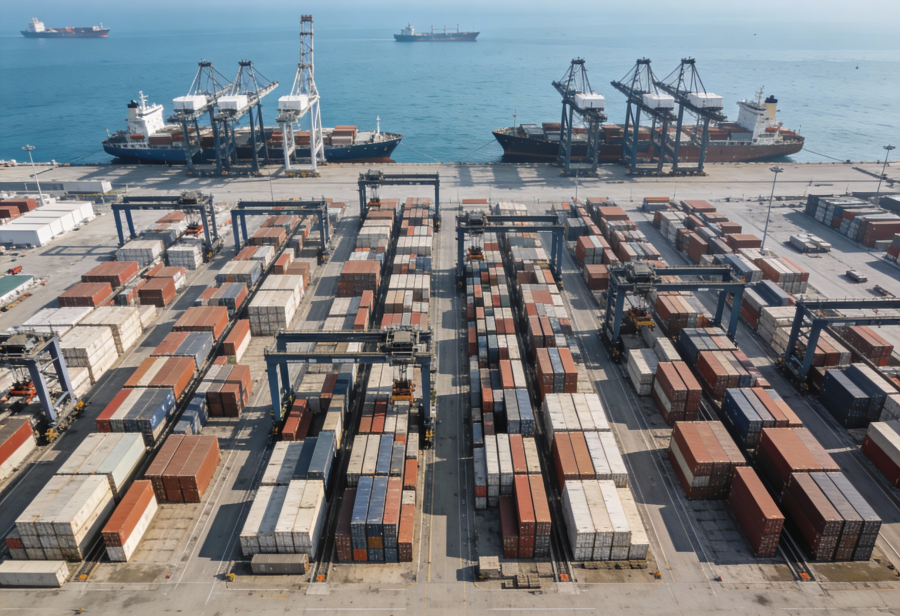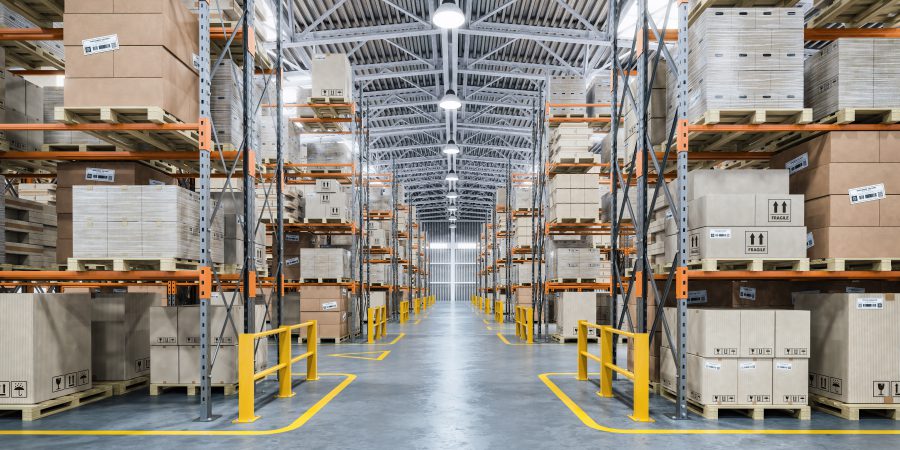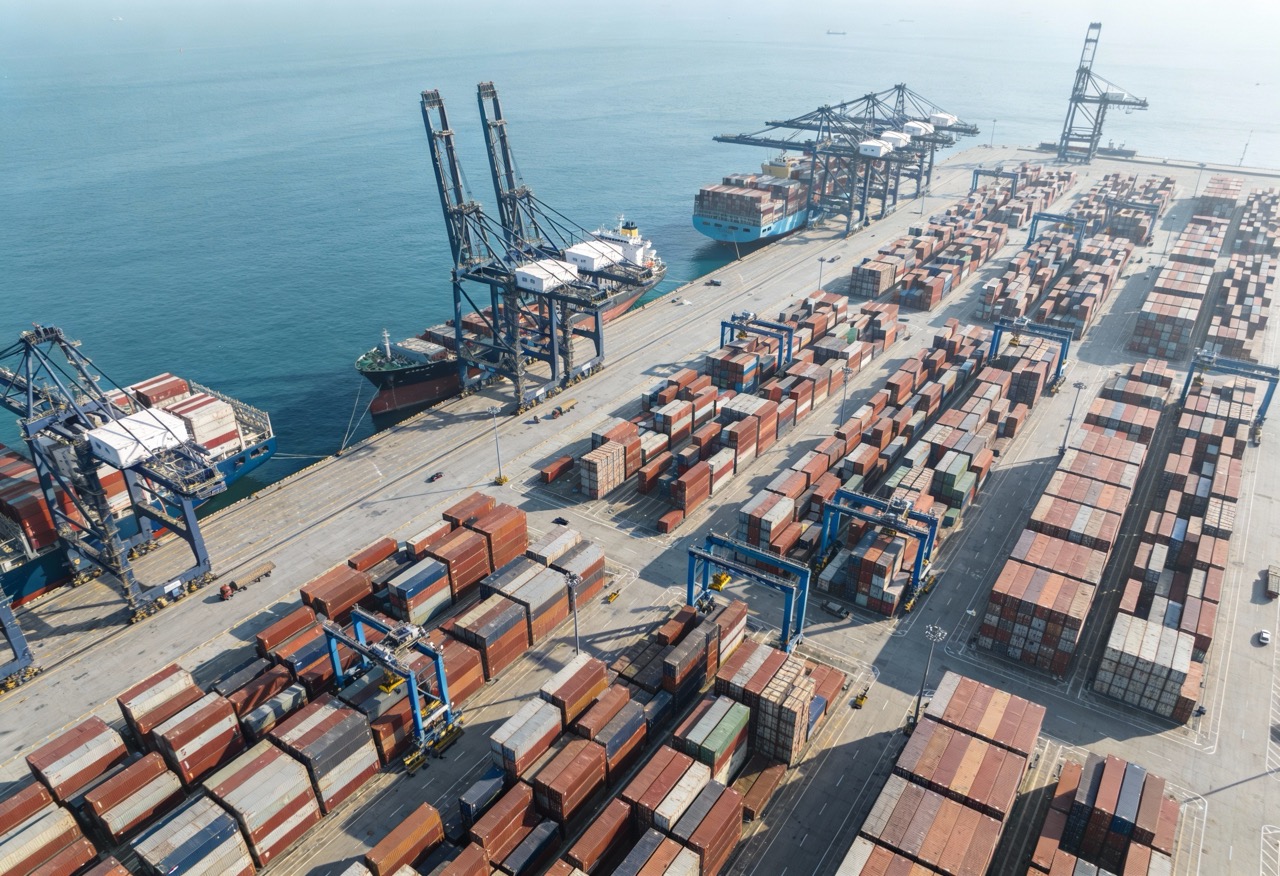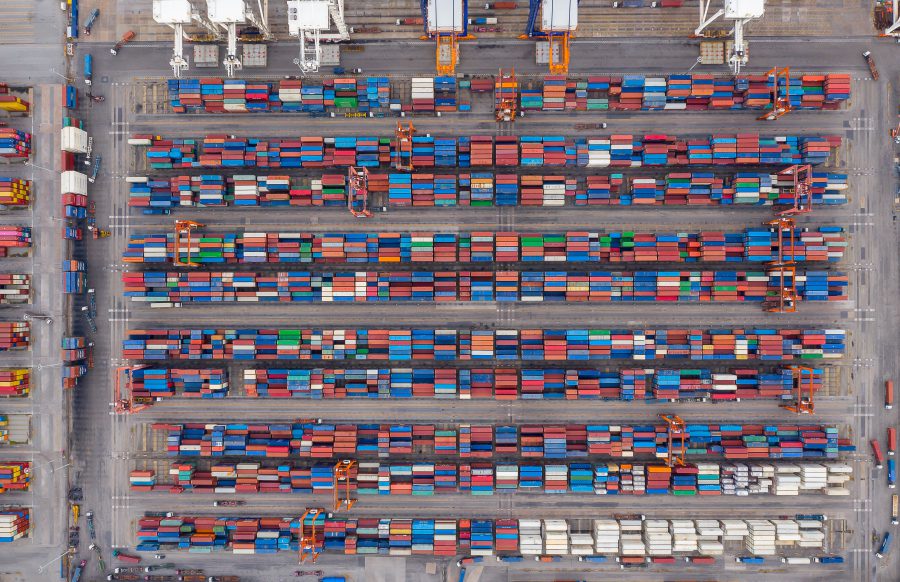In an increasingly globalized world, a logistics company should use best practices in logistics services to connect markets and drive customer confidence
Logistics services refer to the comprehensive supervision of a product or service, from its origin to final point of delivery, meeting the specific requirements of the customer and corporation, at both ends of a business supply chain. This involves a complex operation of processes, which includes multiple parties. The organization and implementation of logistics services are best handled by a logistics company.
What is a logistics company?
A logistics company is a specialized organization that manages, plans, implements, and controls the efficient, forward, and reverse flow and storage of goods. It also follows information related to a commodity from a point of origin to a point of consumption. The cargo managed by a logistics services provider may include tangible goods such as materials, equipment, and supplies, as well as food and other consumable items. The processes within a logistics and shipping company include the integration of information flow, special equipment, and training of personnel handling particular materials, client-specific packaging, detailed inventory, transportation, warehousing, and security.
What is the role of logistics?
A professional logistics company provides the smooth support and movement of commodities across a supply chain. Warehouses, distribution centers, storage hubs, delivery stations, and the air, land, and sea freight facilities supporting the movement of goods, all fall within the realm of logistics.
When someone thinks of logistics, the easiest way to explain the depth and dimension of the word is to visualize the e-commerce giant Amazon. Considered one of the Big Four technology companies along with Google, Apple, and Facebook, industry gurus estimate that Amazon provides logistics services for about 12% of business-to-consumer shipments worldwide. To serve its customers, Amazon has built an enormous network of warehouses and distribution centers, with over 850 facilities across 22 countries, occupying 220 million square feet! This kind of efficient logistics and distribution system plays a huge role in the success of Amazon.
What are key logistics services?


A successful business is one that sells products, that are not only in demand but also find their way easily to customers. In today’s highly digitalized world, where a lot of items are sold online, goods still need to be moved from a point of origin (vendor) to a final destination (customer) through physical transport. This process of moving things from Point A to Point B, usually through shipping companies, is the arena of logistics. As organizations expand, they outgrow a person-to-person sales model, with multiple factors influencing the way products are moved. This is where logistics services providers come in. They specialize in managing the shipping processes for businesses, coordinating things so that products end up where they need to be in as efficient a manner as possible.
For a logistics services provider, the processes involved in the management of goods, from origin to end source, form the chain of movement. These include the following:
Inventory Management:
A professional logistics company manages its inventory to deliver optimized storage of goods and materials for multiple customers. With digitalized technology looking at inventory in real-time, logistics companies are now able to deliver customizable solutions to clients.
Warehousing:


The warehouse is the central nervous system managing the flow and storage of commodities within a logistics company. It acts as the control room and is the true test of a transportation company’s mettle. Factors like location, number, size, layout, and design play a huge role in how the movement and logistics of customer goods are managed.
Supporting Transport and Freight Services:
Transport, including freight services, is what keeps the customer supply chain moving smoothly without hiccups. The physical transfer of goods, from picking them at source, deciding on the best method of shipping along with the transport infrastructure, to its final destination, is the professional area of expertise for an experienced logistics company. Transportation of commodities can be tricky, especially if the routes by land, air, or sea are prone to weather disruptions, political upheavals, or security issues. A professional logistics company oversees the coordination of transportation services to deliver on a maximum utilization of space, strategically routing and timing multiple client consignments to ensure that there are no delays.
Handling of Goods:
A professional logistics company ensures the proper handling of goods through trained personnel and the use of the correct supporting infrastructure. The introduction of digitalization and automation to the handling of goods has added to logistical productivity. To go back to the example of Amazon, the company has long used robots to help move merchandise around warehouses. Equally, the introduction of Systems Applications and Products (SAP) in data processing for warehouses, inventory management, and handling of goods has increased the volume, speed, and level of service through which a logistics company now transports cargo.
Packaging:
Logistical or industrial packaging is different from the product packaging directed by market trends and consumer behavior. A logistics company provides packaging that guarantees minimal damage to commodities during material handling and movement. Understanding merchandise and how it needs to be packed, handled, and transported is a very important part of the movement of goods.
Integrated Information Systems:
A logistics company employs information systems that play a crucial role in delivering efficient logistics services to customers. Information technology tools are constantly used to identify, access, store, analyze and retrieve information on goods. A logistics company will work regionally, as well as across international state lines. Logistics services providers now use technology to help manage the movement of goods in the most optimal way. Integrated software helps professionals in the field determine best routes, as well as deal with complications as they arise.
Logistics management best practices
Logistics management, or logistics services management, often confused with supply chain management (SCM) is actually a subset of the latter. SCM includes inter-enterprise, multi-functional processes that target everything from the supplier’s inbound freight to the end consumer. Logistics management is the more practical, hands-on part of the supply chain where goods are transported into a facility, properly stored, handled, and transported out.
Logistics management, or logistics services management, plays a significant role in the success of any company’s operations and has a direct impact on its bottom line.
Logistics Strategy:
A fine-tuned logistics strategy, helps a logistics company make quick, informed decisions that can save clients up to 40% on logistics costs. As the supply chain is constantly changing, so are logistics processes involved in the movement of clients’ goods. Using developed and implementable formal logistics strategies add flexibility to the decision-making process and increase the error-response time. Equally, professional logistics companies are adept at predicting disruptions and responses, ensuring that logistics services and support to a client’s supply chain stay at peak performance.
Having a business’s logistics functions and its overall supply chain cycle assessed by a logistics company, helps a business determine the best transport solutions.
Some client-specific questions that a logistics company will consider include:
- What are the benefits of handling a client’s diverse kinds of consignments differently – such as, expedited shipping versus slower-moving cargo?
- When should items be inventoried and when should they be forwarded directly to an end customer?
- What role can a shipping company play in the transportation and distribution network of a business’s goods, and how can it be improved for more expedient and efficient transfer of products.
- Does a change of carrier, or a particular mode of transport save money, or improve service, for a client in outbound transportation?
- How much client inventory should a logistics company carry at a given time to be functioning at an optimal level?
- What are the specific customer-oriented goals? Speed? Safety?
For every business, there are different logistics needs and different ways to evaluate operational success. A static logistics strategy will cause serious harm to a business’s service and its bottom line.
While the logistics environment changes frequently, and the amount of data available for analysis grows, logistics service providers and shipping companies actively strategize in order to stay ahead of the fluctuations to avoid disorder within a business’s supply chain. A professional logistics provider, therefore, is always asking questions about logistics processes, evaluating successes and inefficiencies, and altering logistics management strategies to fit clients’ changing needs.
An efficient logistics services company regularly analyzes its inbound and outbound logistics management, while taking into consideration vendor compliance programs. Equally, a successful freight company always has practical and implementable reverse logistics in place, so that in the event of a return on goods, the movement of products does not impact the client’s supply chain management or bottom line.
Third-party logistics companies
Businesses need to take a strategic approach to collaboration and outsourcing with third-party logistics (3PL) companies if they want to grow and expand. 3PLs offer improved customer service and more effective procedures. Working closely with a 3PL allows the logistics provider to see a client’s challenges and opportunities from every possible angle.
The year 2018 saw a huge growth in third-party logistics services providers within the United States. The two main factors driving this growth were an unusual buildup in inventory on imported products as domestic suppliers fought import tariffs. This, along with tight domestic-carrier capacity drove up rates and increased fuel surcharge revenue. As businesses were faced with tough measures, they increasingly turned to 3PL companies to move goods.
Regionally within the Middle East as well, as businesses tighten their belt to ride shrinking economies to their end, there has been an increase in 3PLs to help businesses effectively coordinate within their supply chain. An example can be seen in the auto industry where a reduction in domestic motor-carrier capacity is seeing growth within the more mature, 3PL asset-heavy, dedicated contract-carriage segment.
Advantages and disadvantages of working with 3pls


At some point within the growth cycle of a business, it will have too much on its plate. Printing labels, finding correct postage, and managing inventories is a complicated task, in addition to the production of a good. That is why any small-to-medium-sized operation looking to grow its client base, will at some point or the other, need to go the way of third-party logistics support. This will help a business scale its shipping-fulfillment process while focusing on the core strengths of its business.
Advantages:
Market’s today favor companies that focus on their strengths, devoting as much of their time and resources to product development. Outsourcing shipping and warehousing solutions to 3PLs, therefore, allows even smaller boutique operations to have a national, regional, or international reach, that is easily scalable to meet market demands.
Some of the benefits of using 3PLs include the following:
- Reach new markets through an easier movement of goods. Experienced 3PL logistics providers already have existing relationships. They can facilitate introductions in a new market, where a smaller business is looking to grow, making the transition easier.
- Take advantage of an existing logistics infrastructure and an experienced logistics mover who is up to speed on national, regional, and international tariffs, laws, and regulations.
- Utilize economies of scale by rapidly scaling to demand, by piggybacking off a 3PLs logistical and warehousing support. Additionally, as 3PLs service other clients as well, it saves business money on every stage of the logistics chain.
- Benefit from reduced transport costs. Using a 3PL logistics provider allows businesses to skip the costly trial-and-error process involved in growing, as well as, the significant investment of time and resources required to build a shipping and fulfillment network.
- Gain a turnkey customer-service and returns system. Some 3PL logistics providers also offer other services in addition to shipping, which can allow a business to focus even more on its core strengths.
The only disadvantage of outsourcing to a 3PL is the loss of control a business may feel over the movement of its products. However, with a professional and trustworthy logistics company on board, a business can be confident that its products are in the safest hands.
There are many third-party logistics providers to choose from today, so a business is advised to explore all available options before making a decision. While the price is an important factor to consider, it is a good idea for businesses to look at the size, reach, and maturity of a 3PL, as well as at the other services (if any) that they can offer. Perhaps the most important factor to consider is whether a 3PL is trustworthy and capable, as they are likely to be default partners in the success of a business.
For more information on logistics solutions and logistics-partnering options, get in touch or click here.







